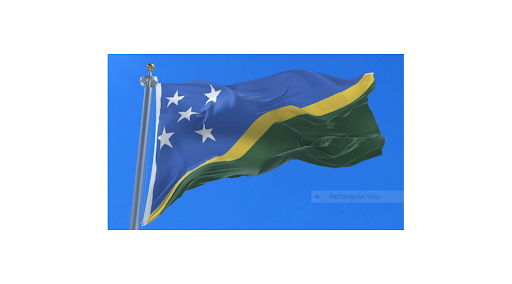I first stepped ashore in Singapore in 1959 when it was then far from the vastly rich and successful power house that it is today.
Unlike the Solomon Islands it has a tiny land mass and today has an estimated population of 5.45 million.
In the early years leading to full nationhood, the pathway to national unity was not easy and the July 1964 racial riots played a significant role in shaping some of Singapore's fundamental principles such as multiculturalism and multiracialism once it had gained independence from Malaysia in
The July 1964 racial riots played a significant role in shaping some of Singapore's fundamental principles such as multiculturalism and multiracialism once it had gained independence from Malaysia in 1965. The Singapore Constitution emphasized the need to adopt non-discriminatory policies based on race or religion. Furthermore, the state also guaranteed the grant of minority rights and to ensure that the minorities in Singapore are not mistreated, the Maintenance of the Religious Harmony Act was drafted and implemented in 1990. Furthermore, the Presidential Council for the Minority Rights (PCMR) was established in 1970 to ensure that the bills passed by the parliament are not discriminatory against any racial group.[3] The government has used the recollection of the 1964 race riots to frame the national narrative of "rising from the ashes of violence-producing racial and religious acrimony to religious harmony and civil peace".[15] For instance, former Prime Minister Goh had implemented a new curriculum known as National Education to foster social and national cohesiveness among Singaporeans. In this national education program, students were taught about the 1964 racial riots to educate the younger generation about the detrimental implications of the racial tension to the cohesiveness of a nation. Furthermore, commemorative days such as racial harmony day was also introduced in 1997 to foster greater cultural appreciation and to enable students to inculcate values such as respect. Every year on 21 July, schools commemorate the racial riots to emphasise the need for tolerance among each other.[3] During this commemoration day, schools recall the racial riots that occurred but however, the emphasis on the events are focused on the tension between the Malays and the Chinese.
In today’s Singapore ethnic Chinese, Malay and Indians live side by side amicably.
Singapore's stated foreign policy priority is maintaining security in Southeast Asia and surrounding territories. An underlying principle is political and economic stability in the region. It has diplomatic relations with more than 180 sovereign states.
As one of the five founding members of ASEAN,[128] Singapore is a strong supporter of the ASEAN Free Trade Area (AFTA) and the ASEAN Investment Area (AIA) as its economy is closely linked to that of the region as a whole.
The first diplomatic contact with China was made in the 1970s, with full diplomatic relations established in the 1990s. Since then the two countries have been major players in strengthening the ASEAN–China relationship,] and has maintained a long-standing and greatly prioritised close relationship partly due to China's growing influence and essentiality in the Asia-Pacific region, specifying that "its common interest with China is far greater than any differences". Furthermore, Singapore has positioned itself as a strong supporter of China's constructive engagement and peaceful development in the region.
In addition, China has been Singapore's largest trading partner since 2013, after surpassing Malaysia.
Singapore and the United States share a long-standing close relationship, in particular in defence, the economy, health, and education. Singapore has also pushed regional counter-terrorism initiatives, with a strong resolve to deal with terrorists inside its borders. To this end, the country has stepped up co-operation with ASEAN members and China to strengthen regional security and fight terrorism, as well as participating in the organisation's first joint maritime exercise with the latter.[ It has also given support to the US-led coalition to fight terrorism, with bilateral co-operation in counter-terrorism nd counter-proliferation initiatives, and joint military exercises.
Yours sincerely
Frank Short



